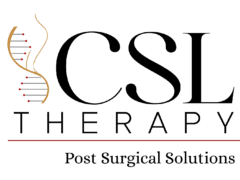Scope of Practice for CSL Therapy Advanced Scholastic Trainers in the Continuing Education Unit (CEU) space
Introduction:
This Scope of Practice outlines the roles, responsibilities, and limitations of a CSL Therapy Advanced Scholastic Trainer in the Continuing Education Unit (CEU) space. It serves as a comprehensive guideline to ensure that AST instructors maintain the highest standards of professionalism, ethics, and competence while providing education to CSL therapy practitioners, applicants, and certificants. AST instructors help advance the knowledge and skills of CSL therapists, ensuring that they meet regulatory requirements and stay current with industry developments.
I. Educational Qualifications:
- An AST Instructor must possess a minimum of 1 Year Professional tenure in the Body Altering Aesthetic space OR at least 1 Year Professional experience in an ancillary licensed profession
- The CEU instructor should have a relevant educational background, such as a bachelor’s or master’s degree in massage therapy, education, or a related field.
- Knowledge and understanding of the subject matters available to be taught.
- High school diploma or the equivalent
- Ability to pass a background check
II. Scope of Responsibilities:
- Curriculum Development:
a. Develop and update educational content that aligns with industry standards and regulatory requirements.
b. Design course materials, lesson plans, and learning objectives that facilitate effective learning.
- Course Delivery:
a. Deliver AST CEU courses in a clear, concise, and engaging manner.
b. Utilize diverse teaching methods, including lectures, hands-on demonstrations, multimedia presentations, and interactive discussions.
c. Foster a collaborative and participatory learning environment that encourages active student involvement [whether online, in-person, or hybrid]
d. Incorporate real-world case studies and practical scenarios to illustrate concepts and enhance practical understanding.
- Assessment and Evaluation:
a. Develop assessment tools, such as quizzes, exams, and practical evaluations, to measure student comprehension and competency.
b. Provide constructive feedback to students on their performance.
c. Develop course assessments for students to review the AST CEU course at ht even dot the instructional period
- Compliance and Ethics:
a. Ensure that all CEU courses adhere to local, state, and national regulations governing CSL therapy education.
b. Uphold the highest standards of ethical conduct and professional integrity in all interactions with students.
- Professional Development:
a. Stay current with advancements in CSL therapy techniques, research, and industry trends.
b. Pursue ongoing education and training to enhance instructional skills and knowledge.
c. Actively engage in peer observation and collaborative feedback sessions with fellow instructors to improve teaching methods and strategies.
d. Encourage and facilitate student participation in relevant workshops, conferences, or industry events to foster learning among students.
- Administrative Responsibilities:
a. Maintain accurate records of student attendance, grades, and course materials.
b. Respond to student inquiries promptly and provide necessary support.
c. Submit respective assessments to CSL Therapy Org in accordance to AST handbook
- Safety and Hygiene:
a. Maintain a safe and hygienic learning environment during hands-on training.
b. Demonstrate and promote proper sanitation practices in CSL therapy.
c. Keep up-to-date with relevant safety regulations and guidelines in the field of CSL therapy and implement them into the educational setting to instill a culture of safety among students.
III. Limitations:
- AST instructors should not diagnose medical conditions, prescribe medications, or provide medical treatments to students.
- They should refrain from making unsubstantiated claims about the therapeutic benefits of CSL therapy during instruction.
- They should refrain from making unsubstantiated claims about CSL Therapy techniques, facts, or trends not supported by facts or research.
- They should refrain from teaching material that has not been approved.
- CEU instructors should not engage in any form of harassment, discrimination, or unethical behavior toward students or colleagues.
- Instructors should not provide biased or prejudiced information during the course that contradicts professional standards or ethical guidelines.
IV. Professional Conduct:
- AST instructors are expected to maintain professional decorum at all times, both inside and outside the identified classroom (which includes online platforms).
- They must respect the privacy and confidentiality of students and their personal information.
- Instructors should address student concerns and grievances promptly and in accordance with institutional policies.
- AST instructors should foster a positive and inclusive learning environment that promotes diversity and respect for all students.
V. Continuing Education:
AST instructors are encouraged to engage in ongoing professional development to stay updated with changes in massage therapy practices, regulations, and educational methods.
The Scope of Practice for a CSL Therapy AST CEU Instructor outlines the responsibilities, qualifications, limitations, and ethical expectations for professionals in this role. Adherence to this scope ensures that CSL therapy AST CEU instructors contribute effectively to the development and growth of CSL therapy practitioners, maintaining the highest standards of education and professionalism in the field.
